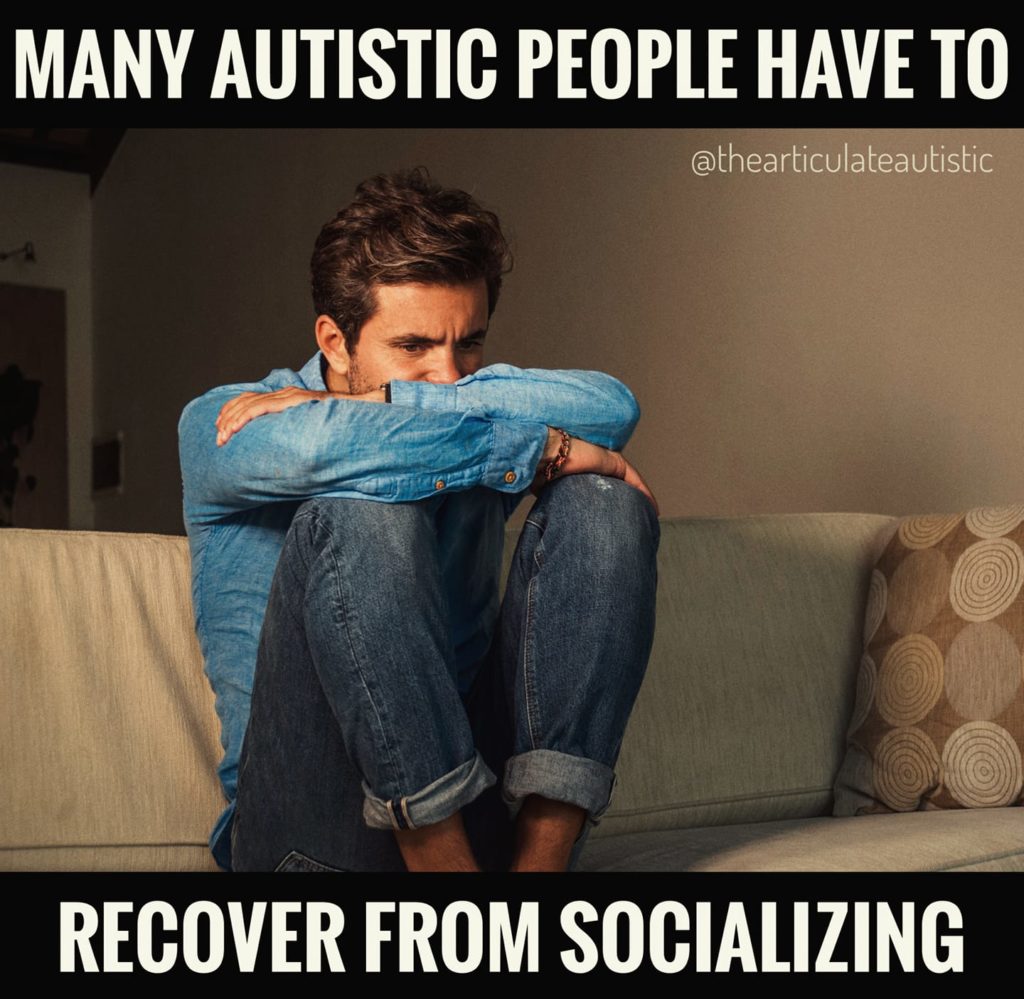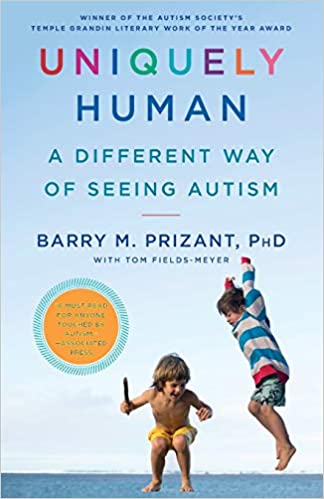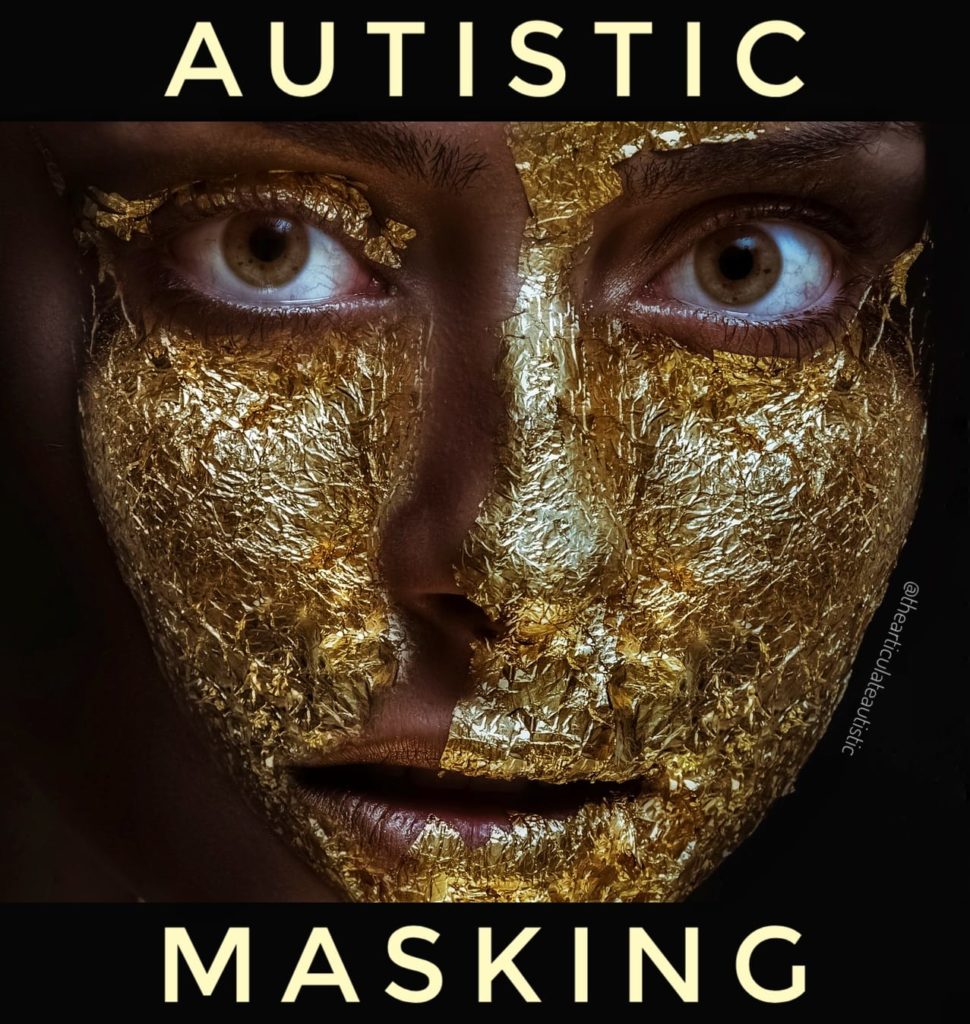Many Autistic People Have to Recover from Socializing

“How come you don’t socialize more?” “You should try to get out once in a while.” “We’re having another family get-together this month! You’ll be there, right?”
I almost gave myself a panic attack with that last one. No. No, I will not be there, and here’s why:
Socializing, any socializing, is something I have to recover from, and I’ve always been this way.
Even if I love the people I’m around and really enjoy my time spent with them, I need long breaks in between. More than 2 major social events in a month is WAY too much for me and will send me into shutdown mode.
Now, around this time last year, I was invited to yet another family event, and I was already extremely overloaded. I said “no”, and that was the last time I saw them.
When I say I have to recover from socializing, I’m not kidding.
(Article continues below.)
The best way to improve communication with your autistic loved one is to understand how your autistic loved one’s mind works! Intentions, motivations, and personal expressions (facial expressions or lack thereof, body language, etc.), are often quite different in autistic people than they are in neurotypical people.
Experience a better understanding of your autistic loved one by reading books about life from an autistic perspective as well as stories that feature autistic characters. You’ll have so many “Ah ha!” moments and start seeing your autistic loved one in a different light (and you’ll have a better understanding of their behaviors, which you may have been misinterpreting up until now).
Books I recommend for a better understanding of your autistic loved one:
Here’s what socializing feels like for me:
I get together with, let’s say, family for a holiday party. There are sounds, smells, textures, foods, etc., that I have to manually filter out and force myself not to react negatively to.
Dogs barking, kids yelling, birds screeching, multiple people talking at once, asking rapid-fire questions, laughing loudly, and joking. I get startled into very manageable but concealed panic attacks at least 100 times.
There’s cooking and baking and heat, and I’m severely heat intolerant. There’s sitting on chairs that don’t support my upper back, which will often lead to shoulder spasms due to chronic neck tension and hypermobility.
There’s also making constant and conscious effort to police my facial expressions, vocal tone, physical movements, and speech patterns so that nothing I do calls unnecessary attention to me.
This is called masking.
Then, there are the games. I don’t understand 90% of card games or board games, and I won’t retain any of the rules if I’m taught. If it’s a made-up game, and there is timing or coordination involved, that causes a serious strain, too.
And remember, I have to navigate ALL of this while appearing to be calm, relaxed, and enjoying myself (which, weirdly, I still do, even though I’m struggling).
After all of this, I must rest for days, sometimes a week or even more. I cannot do this more than once a month, or I will have a meltdown in front of everyone.
Well, for good or for bad, I don’t have to endure these parties anymore, but there were still good moments that I will miss.
My biggest issue is that certain family members literally had no concept of what it took for me to spend time with them, so, not only did they not appreciate my efforts, they didn’t even believe I was making any effort at all!
I’m not saying all autistic people experience socializing like this, but I do. What many people look forward to and feel bolstered by makes me feel like someone has sucked the life out of me.
Hopefully, in sharing this perspective, I can help you to better understand your autistic or otherwise neurodivergent loved one.
Follow me on Instagram.
Want downloadable, PDF-format copies of these blog posts to print and use with your loved ones or small class? Click here to become a Patreon supporter!








1 Response
[…] is a manual process that requires extensive concentration and effort, which can lead to social exhaustion, especially when talking on the phone. This is because, as I mentioned in the last bullet point, we […]